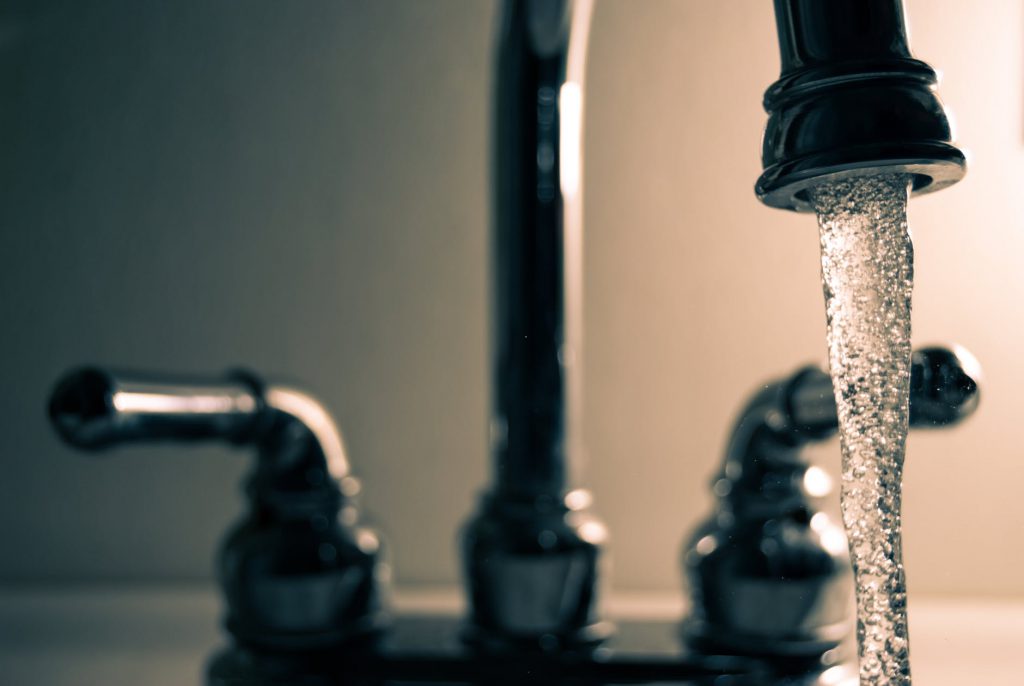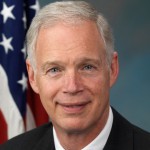99% of State Public Water Meets Standards
But new report finds more than 300 water systems unsafe, violate federal standards.
A recent report finds the vast majority of public water supplies are meeting standards for safe drinking water. But lawmakers and environmental advocates say more needs to be done to protect Wisconsin’s drinking water.
The 2019 annual drinking water report released Monday found more than 99 percent of the state’s 11,525 public water systems met federal standards last year under the Safe Drinking Water Act, said Steve Elmore, director of the Bureau of Drinking Water and Groundwater at the Wisconsin Department of Natural Resources.
“It’s a testament to all the good work we do, that systems do, to maintain compliance with the drinking water standards,” Elmore said. “With that number, there’s obviously a small percentage that aren’t in compliance with the standards, and we’re working with those folks to come back into compliance as soon as possible.”
The law requires public systems to test water for more than 90 contaminants and notify people when they’ve reached unsafe levels.
Yet, environmental advocates note the state doesn’t have standards yet to test for emerging contaminants like perfluoroalkyl and polyfluoroalkyl substances, commonly known as PFAS. The drinking water report also doesn’t include data on private wells that provide water to roughly 30 percent of state residents who aren’t required to test their water supplies but are encouraged to.
One of the environmental advocates is Jennifer Giegerich, government affairs director for the Wisconsin Conservation Voters.
“So that still leaves a lot of gaps in the protection of public health when it comes to our drinking water in the state of Wisconsin,” said Giegerich.
Concern over the safety of drinking water from private wells has grown as studies have shown groundwater contaminated with nitrates or fecal matter in wells across northeastern and southwestern Wisconsin.
Giegerich said the Legislature failed to protect water quality in the last session, citing inaction by Republican leaders in the Conservation Voters’ annual conservation scorecard that tracks votes on environmental issues.
Gov. Tony Evers dubbed 2019 the “Year of Clean Drinking Water,” and a water quality task force convened by Assembly Speaker Robin Vos, R-Rochester, held meetings throughout the year that produced more than a dozen bills. The package of legislation was introduced in January of this year to address emerging contaminants like PFAS, groundwater pollution from manure runoff and contaminated wells. Many of the bills passed the Assembly with unanimous support from both parties, but they died in the Senate.
Sen. Rob Cowles, R-Green Bay, said “everything got shut down” by the pandemic. He expects the bills will be introduced in the next legislative session.
“I’m anxious to get most of these bills going again and see how many we can get done even within the context of a diminished budget, and I am optimistic that quite a few of these can make it,” said Cowles.
Cowles added he and other lawmakers also plan to bring back legislation to address PFAS chemicals, as well as lead testing and remediation in schools. Opponents have criticized Republicans for removing $40 million from the state budget for the replacement of lead service lines, as well as failing to take up legislation that would expand monitoring and funding to address PFAS contamination. Some Republicans have said such proposals were too expensive or overstepped their authority.
The northeastern Wisconsin lawmaker’s district has dealt with groundwater contamination due to the region’s fractured bedrock and manure runoff from farms. Drinking water contamination from nitrate and other pathogens in Kewaunee County prompted the DNR to impose restrictions on manure-spreading across 15 counties.
Around 10 percent of private wells sampled in Wisconsin exceed safe levels of nitrate in groundwater — about 90 percent of which stems from agriculture, according to a separate report by the Wisconsin Groundwater Coordinating Council.
Among the package of bills introduced earlier this year was legislation that would increase funding for county conservation staff to work with farms to prevent runoff into water supplies and a grant program to help people replace or treat contaminated wells.
“I’ve called on the speaker and the Legislature to continue this task force into the next session,” said Shankland. “Our work is not done. Even if all these bills pass, the chair and I have both said this is just the beginning.”
Vos spokesperson Kit Beyer said in a statement that the package of bills introduced by the task force received broad bipartisan support.
“Unfortunately, COVID-19 caused the session to come to an abrupt end with the bills in the Senate,” Beyer said. “Similar to what has happened with previous speaker task forces, work on these important issues never ends and continues for many sessions.”
A spokesperson for Senate Majority Leader Scott Fitzgerald, R-Juneau, did not immediately return a request for comment Monday.
Listen to the WPR report here.
Most Public Water Supplies In Wisconsin Meet Standards, But Safe Drinking Water Eludes Some was originally published by Wisconsin Public Radio.
More about the PFAS Problem
- Gov. Evers and GOP Lawmakers Near a Deal on PFAS Pollution - Danielle Kaeding - Jan 22nd, 2026
- Gov. Evers Optimistic About Reaching Final Deal With Republican Lawmakers to Secure Release of $125 Million in Long-Awaited Pfas Investments - Gov. Tony Evers - Jan 21st, 2026
- Bipartisan Push to Tell Counties Faster When Water Tests Fail - Henry Redman - Dec 19th, 2025
- MKE County: County Seeks to Sue PFAS Producers, Oil Companies - Graham Kilmer - Dec 10th, 2025
- Wisconsin Reviewing EPA-Approved Pesticides For PFAS - Danielle Kaeding - Dec 9th, 2025
- State Nears Settlement with Johnson Controls/Tyco Over PFAS Spills - Danielle Kaeding - Dec 4th, 2025
- Senate Bill Promotes Soybean-Based Firefighting Foam to Replace PFAS - Danielle Kaeding - Dec 2nd, 2025
- Test Results Show High PFAS Levels in Wisconsin’s Landfill Runoff - Danielle Kaeding - Dec 2nd, 2025
- Wisconsin Communities Get $282 Million for Drinking Water Projects - Danielle Kaeding - Nov 19th, 2025
- Gov. Evers, DNR Announce $282 Million to Improve Drinking Water Quality for Wisconsinites in 74 Municipalities - Gov. Tony Evers - Nov 18th, 2025
Read more about PFAS Problem here






















